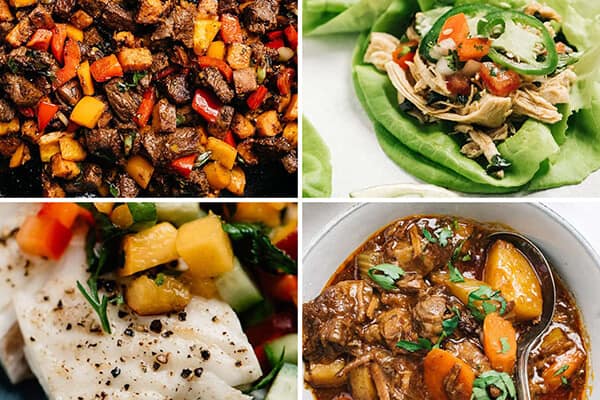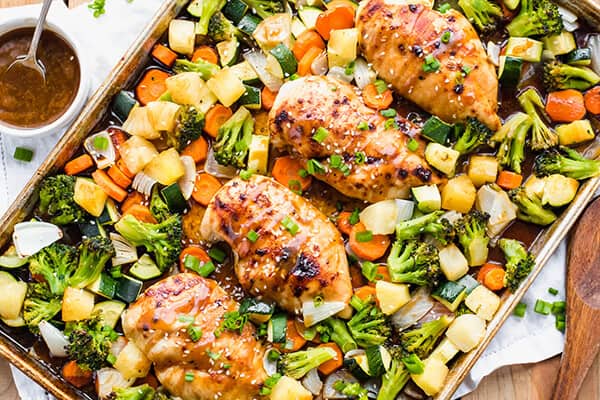Whole 30 Challenge

The Whole30 program is increasingly becoming popular, and it is one of the most common health movements today. Many people take the Whole 30 challenge because of the numerous benefits it offers. The program helps people to reset their diets by encouraging them to eliminate legumes, grains, sugar, dairy, additives, and alcohol from their diet for 30 days.
Many Whole30 followers see great changes in their bodies at the end of the 30 days, including massive health benefits. However, some people are still wondering if it works and whether or not they should try it. Read on to know everything about the Whole 30 challenge and whether or not you should try it.
Read more: Reasons to Hire a Whole 30 Coach
What Exactly Is Whole30?

The Whole30 program is a clean-eating, 30 days program that promises a wide range of emotional, physical, and health benefits. Two certified sports nutritionists created the Whole30 program back in 2009. They promoted the program as a way to restructure your relationship with food and reset your metabolism.
The idea behind the Whole30 program is that some food groups are not healthy for the body; they might be affecting your fitness, health, and overall wellbeing negatively. Hence, removing those food groups from your diet might help you recover from the negative effects of those foods and provide you with better health.
Over the years, one of the most common testimonies of this program is weight loss. Whole30 is not a weight loss program, but the new eating habit it introduces helps people to lose weight, which is why many have been taking this challenge.
Read more : 9 Whole30 Dessert Recipes You’ll Love
How to Do the Whole 30 Challenge
The Whole30 challenge is not an easy one. However, the journey becomes easy when you have all you need at hand. The whole idea behind the program is very simple. All you have to do is to eliminate certain food groups from your diet for 30 days. The food groups you will have to eliminate are believed to be causing harm to your health and fitness, which is why the program encourages you to stay away from them for 30 days.
After the 30 days, you would reintroduce some of those foods you missed slowly. This would help you to monitor the effects of these foods on your body. With this approach, you would be able to know the food groups that are causing issues in your body, as your body would react when you reintroduce them.
Read more: Whole30 and Pregnancy
This program requires patience and consistency, as no cheating is allowed. It has a list of approved and disapproved foods that you can eat for the 30-day period, which we would list below. You need to stick to the list of approved foods and create a Whole30 meal plan that will guide you through the 30 days.
According to the founders of the program, following the rules of the program strictly will help to reset your body in isolation from some food groups that might cause gut disruptions, inflammation, or hormone imbalances.
With this program, you no longer have to track calories, count points, or measure portions for 30 days. The rules of the challenge also prohibit you from checking your weight all through the program. The program does not limit your food consumption but only restricts the kind of food you eat for 30 days.
Read more: Paleo vs Keto vs Whole30
Whole 30 Foods to Eat
The Whole30 approved food list consists mainly of healthy food groups, with minimally processed foods. If you are embarking on the Whole 30 challenge, here is a list of foods you can eat:
- Fish and Seafood: This program allows for a wide range of fish and seafood such as crab, scallops, lobster, calamari, shrimp, anchovies, different species of fish, and more.
- Poultry and Meat: Lamb, turkey, chicken, duck, pork, veal, beef, salmon, and more.
- Eggs: You can eat all types of eggs on this program. You can also eat foods made with eggs like homemade mayo.
- Veggies: While on this challenge, veggies would be some of your best meals. The program allows you to eat all types of vegetables.
- Fruits: You would also be eating many fruits while on this program. It allows for both dried and fresh fruits. However, you should eat more fresh fruits.
- Fats: You can take fat from some healthy fat sources such as duck fat, coconut oil, healthy plant oils, ghee, and clarified butter.
- Seeds and Nuts: Since the program eliminates many junk foods, including snacks, you would have to turn to nuts and seeds as an alternative. The Whole 30 program allows for all types of seeds and nuts except peanuts, which fall into the category of legumes. You can take nut flours, nut butter, and nut milk as well.
- Tea and Drinks: You can take different types of tea provided they do not contain added sugar or sweeteners. Smoothies are also allowed, provided they are made with Whole30-compliant ingredients.
Read more: Whole30 Dinner Recipes
Whole 30 Foods to Avoid

Here is a list of some of the food groups you should avoid during the Whole 30 challenge:
- Artificial Sweeteners and Sugar: You should avoid all forms of artificial sweeteners and added sugar during this challenge. Agave syrup, maple syrup, honey, raw sugar, and other products containing artificial sweeteners should be avoided.
- Grains: You should also stay away from grains during this challenge, regardless of how processed they are.
- Alcohol: All types of alcohol, including spirits, liqueurs, wines, and beer, are not allowed.
- Dairy: The Whole 30 challenge also eliminates dairy including yogurt, ice cream, cheese, sheep milk, goat milk, cow milk, and other dairy-derived products. But you can take ghee or clarified butter.
- Legumes and Pulses: Most peas, beans, and lentils are not allowed with sugar snap peas, snow peas, and green beans being an exception.
- Soy: no form of soy is allowed, including edamame, tempeh, tofu, and more.
- Processed Additives: You are also required to avoid all processed additives including MSG, carrageenan, and sulfites.
Smoking is also prohibited during the program.
Read more: Whole 30 Meals | Whole 30 Day by Day Meal Plan
Conclusion
The Whole30 challenge promises a wide range of health, mental, and physical benefits. However, for you to enjoy these benefits, you need to take up the challenge and play by the rules.
Read more: Whole30 Foods to Avoid






